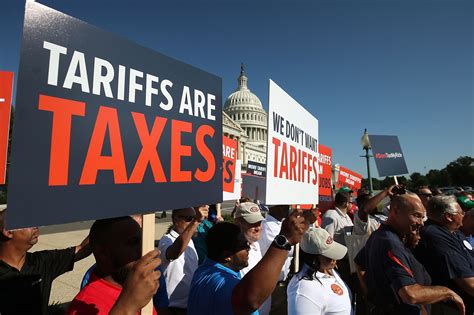Once upon a time, in a bustling White House, U.S. President Donald Trump made a grand proclamation that shook the world to its core. With an air of triumph, he unveiled his plan for reciprocal tariffs that would affect nearly every trading partner of the United States.
As news of these sweeping measures spread like wildfire across continents, reactions varied from disbelief to outrage. European Commission President Ursula von der Leyen captured the collective sentiment succinctly by calling it a
“major blow to the world economy.”
The ripple effect was palpable as uncertainty loomed large, threatening to plunge global markets into chaos.
In response to Trump’s bold move, countries around the globe started strategizing their next steps. The European Union wasted no time in announcing retaliatory tariffs while China vowed to retaliate with equal force against what they deemed as
“unilateral bullying.”
Meanwhile, Canada and Brazil explored legal avenues through reciprocity bills and appeals to international bodies like the World Trade Organization.
Amidst this tumultuous landscape, some nations opted for diplomacy over discord. From India to New Zealand, plans were set in motion to strengthen ties with the U.S. instead of engaging in a tariff tit-for-tat battle. Taiwan took a different approach by condemning the tariffs but sweetening the deal with a hefty investment pledge aimed at placating Trump’s administration.
However disparate their reactions might be, one underlying thread connected all affected countries – a sense of betrayal and disappointment at being targeted by measures that felt more adversarial than amicable. Australian Prime Minister Anthony Albanese summed it up perfectly when he remarked,
“This is not the act of a friend.”
Even as tensions simmered on the trade front, another drama unfolded in Budapest where Hungarian Prime Minister Viktor Orban sent shockwaves through diplomatic circles by announcing Hungary’s decision to exit from the International Criminal Court (ICC). This bold move underscored Orban’s stance on global governance and human rights issues.
Meanwhile, in Greenland, Danish Prime Minister Mette Frederiksen embarked on a mission to fortify relations with local authorities amidst growing U.S. interest in acquiring this strategically positioned territory rich in resources. Her pointed statement about not being able to annex another country was directed squarely at Washington’s ambitions.
As dusk settled on this whirlwind of geopolitical maneuvers and economic gambits, one thing became abundantly clear – the era of smooth-sailing trade relations was fast becoming a distant memory as nations braced themselves for an uncertain future shaped by tariffs and power plays.

